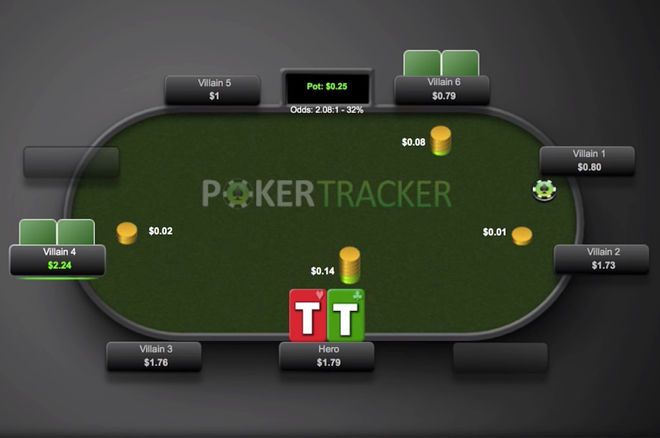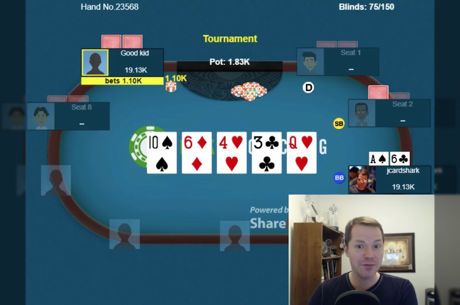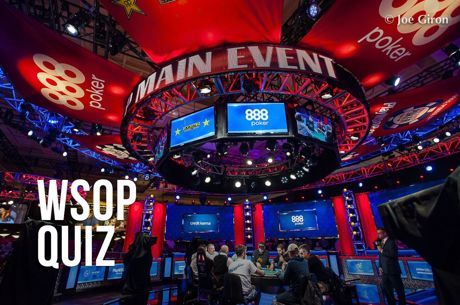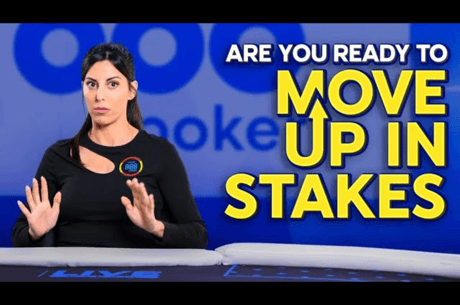These Common Bet Sizing Mistakes Might Be Killing Your Profits

Learning the fundamentals in poker is the most important step in your development into a highly profitable poker player. In my experience, however, many people claim to know the fundamentals, but in reality a lot of the time they don't.
This lack of awareness ends up getting these players into all sorts of terrible spots and spewing unnecessary chips over and over again. Suffice it to say, this is often the number one reason why they are not winning poker players.
In fact, I even created a name for this phenomenon. I call it the "snowball effect," something I discussed in a recent article here on PokerNews. The snowball effect refers to a small, seemingly harmless preflop mistake happening "at the top of the hill" that snowballs into a massive problem by the bottom of the hill, or postflop.
When people send me their poker hands to review, I often see this phenomenon happening over and over again. Here is another perfect example of the snowball effect:
In this hand a fundamental bet sizing mistake happening preflop leads to a terrible situation after the flop which was frankly totally avoidable.
I actually lay out all the groundwork for preflop bet sizing in my first book, Crushing the Microstakes. In the book I recommend the following preflop three-bet sizings for these stakes:
- 3x the original raise when in position
- 4x the original raise when out of position
The reason why I suggest a larger three-bet sizing when out of position is because it is much harder to win the pot when you have to act first after every street postflop. Therefore, by adjusting my three-bet sizing upwards a bit, I am discouraging them from calling me. In other words, I am fine just taking it down preflop more often.
When I am in position, though, I don't mind a few more calls because I will get the benefit of acting last after every street preflop �� a huge advantage. So I use a smaller three-bet sizing.
I have tested these three-bet sizings over millions of hands at these stakes and I think they do the best job of both getting value and giving people a clear option to fold as well. This is exactly what you want. The decision of whether or not to call should be 50-50 in their head.
However, in this hand we see none of this. In fact in this hand hero essentially just "clicks it back." In other words, when three-betting he makes it the absolute minimum amount to go �� 14 cents. Whereas, according to my rules, I would have made it 32 cents to go here (4x the original raise since we are out of position).
The much smaller three-bet sizing used in this hand invites everybody into the pot with a very vulnerable hand like 10?10?. And of course we have to act first on every postflop street, too!
This creates a terrible situation when we flop an overpair (as we do in this hand), because we have absolutely no idea where we stand. To make matters worse, the pot is much, much smaller than it would be if we had made it the correct three-bet sizing before the flop.
As you see, this leads our hero into this hopeless situation of calling down and essentially praying the other players in the hand are either massively overplaying top pair or are on a stone cold bluff.
It is very important that you avoid situations like this in your games. Make the correct decisions at the top of the hill and poker is a much easier game.
Let me know your thoughts below on this hand. How would you have played it?
Nathan "BlackRain79" Williams is the author of the popular micro stakes strategy books Crushing the Microstakes, Modern Small Stakes, and The Microstakes Playbook. He also blogs regularly about all things related to the micros over at www.blackrain79.com.









